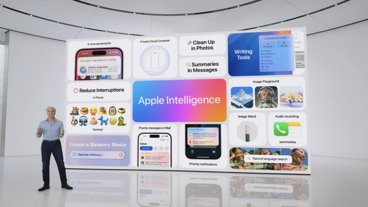Though Sprint has not yet officially opposed the merger, company officials commented on the acquisition Tuesday at the International CTIA wireless conference in Orlando, Fla., Reuters reports.
"When one competitor has that much buying power they can determine the fate of different products," Farib Adib, a Sprint executive in charge of handsets.
As the third-largest wireless carrier in the U.S., Sprint faces stiff competition from first and second place Verizon and AT&T, and last month's launch of the iPhone 4 on Verizon will likely continue to extend the gap.
Steve Elfman, Sprint's president for network operations, warned that a combined AT&T and T-Mobile, which would total about 130 million users, would place significant competitive pressure on Sprint. "They could get better pricing from suppliers than we could and we could be at a disadvantage," he said.
If that were to happen, Sprint's profits could dip and consumers would lose out too if rising costs were passed on to subscribers. "If we have to go down in pricing it will affect our profitability. It could also drive pricing up," said Elfman.
Speaking at the conference, Sprint Chief Executive Dan Hesse cautioned that phone subsidies from carriers will continue to increase as "devices get more powerful." As manufacturers race to outdo each other on camera quality and data transfer speed, "there's going to be more cost to us," said Hesse.
Hesse also criticized the deal in an interview with CNBC's Jim Cramer on Tuesday, as reported by TechCrunch. "If this transaction goes through you’re talking 79 percent, or roughly 80 percent of the market controlled by two companies. I think that’s a little too much–too much concentration," he said.
AT&T and T-Mobile issued a joint press release on Sunday announcing the $39 billion cash and stock deal, which would give Deutsche Telekom an 8 percent stake in AT&T. Though it seems inevitable that T-Mobile would begin carrying Apple's iPhone as a result of the deal, since AT&T was Apple's original partner for the smartphone, the company has cautioned customers that the proposed acquisition will take approximately 12 months to complete.
Shortly after the deal was announced, Minnesota Senator Amy Klobuchar called for an examination of the deal by the Federal Communications Commission and the Department of Justice, citing concerns that a lack of competition could potentially lead to higher prices and reduced service.
AT&T plans to provide service to both carriers' subscribers with shared infrastructure at first, before transitioning T-Mobile customers to its 3G/HSPA+ network. In the longer term, the carrier is relying on a '4G' LTE network, with added help from T-Mobile's AWS spectrum.
Rumors had suggested that Sprint was very interested in buying T-Mobile in an effort to catch up to the larger Verizon and AT&T networks. Earlier this month, Bloomberg reported that Deutsche Telekom and Sprint Nextel were in talks to merge Sprint and T-Mobile USA. At the time, analysts estimated that T-Mobile was worth $15 billion to $20 billion, a figure significantly less than the deal that AT&T struck.
 Josh Ong
Josh Ong






-m.jpg)






 Andrew Orr
Andrew Orr
 Malcolm Owen
Malcolm Owen
 William Gallagher
William Gallagher

 Wesley Hilliard
Wesley Hilliard






-m.jpg)




20 Comments
They scared?
Sprint's profits??
Unless things have changed, last I read, Sprint has been losing money and customers, so they must know what they are talking about. *grins*
But then again, maybe there is a "different reason" for the warning.
CGC
I hate these type of statements. Of course it will put pressure on them, but the assertion that this is bad on the industry is probably not true. It's like the conference my son held the other day in protest to the changing of some of his chores, and how it will be bad for the family. Was really just a bit more work for him.
Didn't we just hear from the at&t haters that this merger would increase prices? Now Sprint says prices will go down because of economy of scale and their profits will suffer because they will have to lower prices too.
So which is it? I guess it depends on your own personal bias as always.